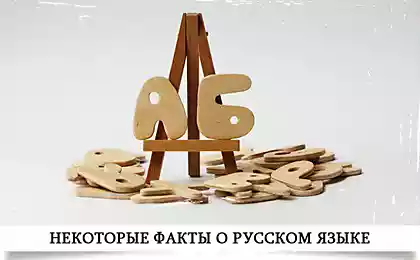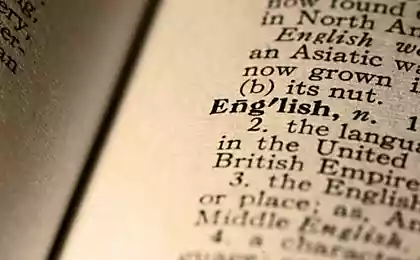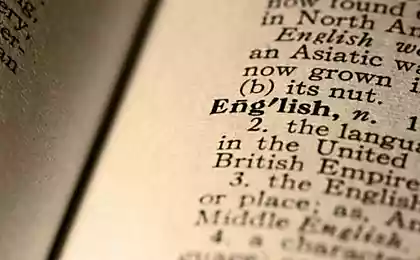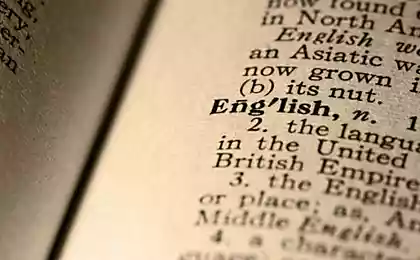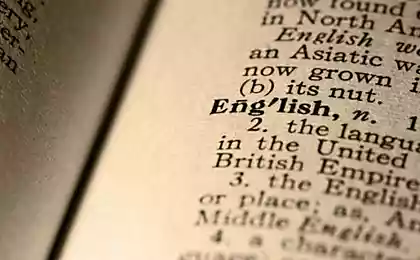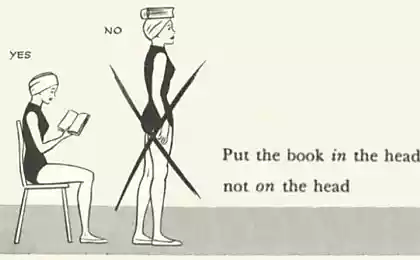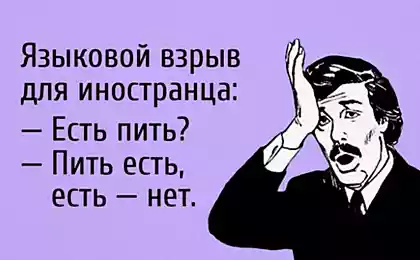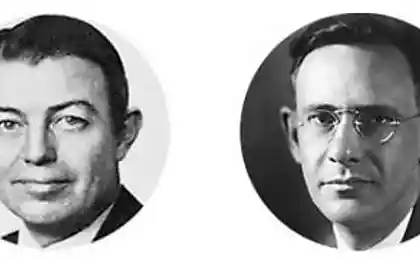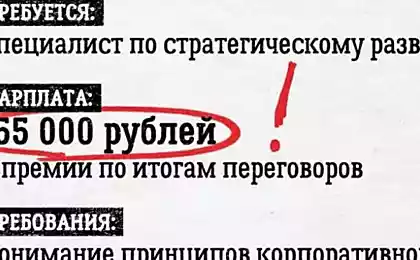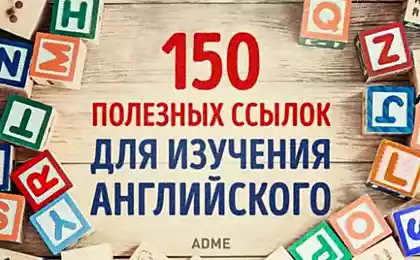767
10 myths about Russian (8 photos)
What kind of "coffee", whether to write "president" with a capital letter and proper to say "eat" instead of "there».
Any reference mistakes that like to refer to the guardians of the Russian language: the wrong emphasis in the word "simultaneously" or confusion between tribal affiliation "coffee". But there are more interesting cases. Most speakers, for example, mispronounce words "opinions differ": the norm states that the emphasis in this verb should be put on the first syllable.
Coffee - borrowed word that ends with the letter "e", but masculine. In the vast majority of such words in our language become neuter - so it works, and this trend is extremely strong. For example, "Metro" was earlier too masculine (from "Metro"), even left the newspaper "Soviet Underground". Foreigners always a mystery why the Russian language "cafe" neuter, and "coffee" - male. But the masculine gender is supported by the presence of antiquated forms of "kofy" and "the coffee." This kind of language Memorial.

«in Strogino»

Anna Akhmatova strongly indignant, when it said, "I live in Kratovo" instead of "I live in Kratovo." Another writer suggested that anyone who says "from Kemerovo", according to the same pattern to say "from the window." Apparently, for a decade, during which the new indeclinable spread option, we have forgotten that this rule has always sounded different. Indeclinable names of settlements emerged from the language of the military, which was important to give the initial form in the message. Take, for example, the same Kratovo - of the decline "in Kratovo" is not clear, zoom it or Kratovo. One of the most authoritative dictionaries today, Dictionary Zalizniak writes about indeclinable form: "The extent of this phenomenon is so great that, apparently, it is approaching the status of admissible».
«Call»
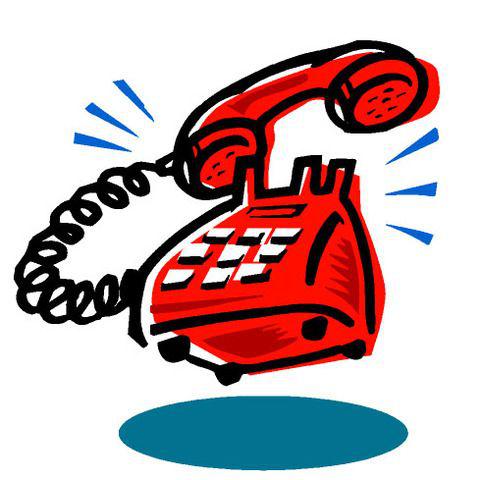
"Bells" - the bogey there any thematic discussion. There is a logic, which in the language of shifting accents, and, whether we like it or not, these laws work. Moving to the end of the stress on the root of the natural - "smoke", "varish" and "you give" had also spoken with the accent on the last syllable, but they have already passed this way. Despite the fact that this is all very angry, we do in the future, we will say "Call».
The President and the Patriarch
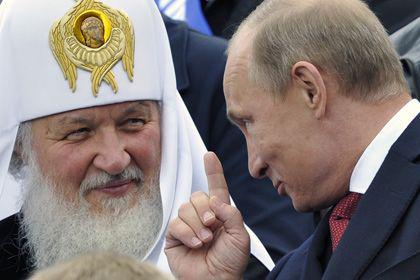
In fact, with these words written in uppercase only with the official titles of, in the texts of official documents. For example, in the text of the Decree of the President of the Russian Federation, the word is spelled with a capital letter. And in a newspaper article, there is no reason for this, and should be written with a lower case. Even very tenacious myth that "birthday", congratulating the person should be written with two capital letters - no, both words are written with little.
"Ukraine»
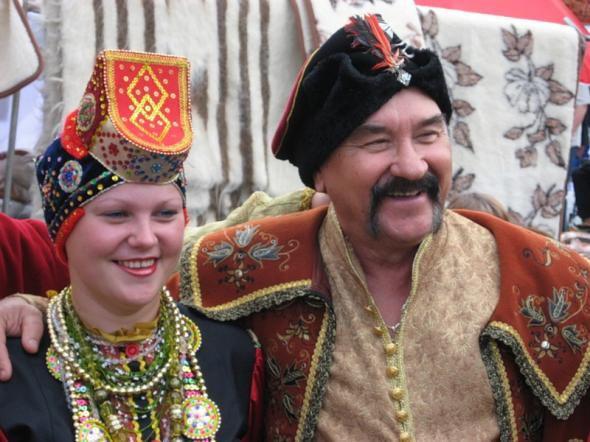
This is a very sensitive issue, and he always goes beyond linguistics. We adhere to this position: the norms of the Russian language are formed for centuries, and they can not be in five, ten or twenty years to change for the sake of some political processes. Therefore, in Russian speak properly "in Ukraine." In general, the formation of excuses not always be explained. Why, for example, "school", but "at the factory?" It happened. That many do not like, all need to get to the bottom. "Everything has to be an explanation" - is another myth, many things can not be explained in the language.
Always has to be one correct version of
It is not good when there are two standards, as is the case with the word "cheese". This is a very common myth. Variation - is in any case not a flaw of the language, on the contrary, it is its wealth. And after all the options are different. There are options equal, as is the case with curd. There are options for the category "preferred / permissible", "modern / outdated", and even errors in the dictionary have their graduation. In pronouncing dictionary, difficulties in the dictionary there is a clear system of litter on the matter. For example, deprecated option - "Vandal", for example. There are incorrect versions, there are roughly wrong. The approach, in which it is believed that only one option is characteristic of the dictionaries addressed to employees of radio and television. There are dictionaries that focus precisely on what to show the dynamics of change and the richness of the language rules. Dictionary - this is not a textbook, it should not be the only option to fix.
Instead of "one last" need to talk "one extreme»

This myth has Uspensky wrote in the fifties in the book "The word of the words." Assumption book explains further that every subject - from the same queue - there are two edges, and the question is thus untenable. In Kolesov is the explanation that it is the use of "extreme" instead of "Last" is borrowed from the Ukrainian language. There is a superstition: all without exception began to say "it was my last performance, extreme lecture extreme transmission." The word "last" has some negative shades. For example, the "bad" - the last scoundrel. It is clear why the use of the word avoid people who are risking their lives: climbers, divers, pilots and circus performers. But when we hear speech ordinary person "when I was there last time something", it sounds ridiculous.
The word "eat" only talk rude people

It was such a recommendation in the dictionary of speech etiquette, according to which the verb can be used in relation to children, so can talk about themselves women, but men should not talk. I do not know whether it is true, but it is - as a simple recommendation.
The pronoun "you" is always written with a capital letter
In fact, the "you" is spelled with a capital letter only when referring to a single person and only in the texts of certain genres: personal letters, memos and leaflets. This, by the way, and for scholars is not always obvious. On Gramote.ru a section "Event Calendar", where proposals come from the users of the portal, and in almost every explanation has to be right, because an appeal to esteemed colleagues include the pronoun "you" with a capital letter.
Any reference mistakes that like to refer to the guardians of the Russian language: the wrong emphasis in the word "simultaneously" or confusion between tribal affiliation "coffee". But there are more interesting cases. Most speakers, for example, mispronounce words "opinions differ": the norm states that the emphasis in this verb should be put on the first syllable.
Coffee - borrowed word that ends with the letter "e", but masculine. In the vast majority of such words in our language become neuter - so it works, and this trend is extremely strong. For example, "Metro" was earlier too masculine (from "Metro"), even left the newspaper "Soviet Underground". Foreigners always a mystery why the Russian language "cafe" neuter, and "coffee" - male. But the masculine gender is supported by the presence of antiquated forms of "kofy" and "the coffee." This kind of language Memorial.

«in Strogino»

Anna Akhmatova strongly indignant, when it said, "I live in Kratovo" instead of "I live in Kratovo." Another writer suggested that anyone who says "from Kemerovo", according to the same pattern to say "from the window." Apparently, for a decade, during which the new indeclinable spread option, we have forgotten that this rule has always sounded different. Indeclinable names of settlements emerged from the language of the military, which was important to give the initial form in the message. Take, for example, the same Kratovo - of the decline "in Kratovo" is not clear, zoom it or Kratovo. One of the most authoritative dictionaries today, Dictionary Zalizniak writes about indeclinable form: "The extent of this phenomenon is so great that, apparently, it is approaching the status of admissible».
«Call»

"Bells" - the bogey there any thematic discussion. There is a logic, which in the language of shifting accents, and, whether we like it or not, these laws work. Moving to the end of the stress on the root of the natural - "smoke", "varish" and "you give" had also spoken with the accent on the last syllable, but they have already passed this way. Despite the fact that this is all very angry, we do in the future, we will say "Call».
The President and the Patriarch

In fact, with these words written in uppercase only with the official titles of, in the texts of official documents. For example, in the text of the Decree of the President of the Russian Federation, the word is spelled with a capital letter. And in a newspaper article, there is no reason for this, and should be written with a lower case. Even very tenacious myth that "birthday", congratulating the person should be written with two capital letters - no, both words are written with little.
"Ukraine»

This is a very sensitive issue, and he always goes beyond linguistics. We adhere to this position: the norms of the Russian language are formed for centuries, and they can not be in five, ten or twenty years to change for the sake of some political processes. Therefore, in Russian speak properly "in Ukraine." In general, the formation of excuses not always be explained. Why, for example, "school", but "at the factory?" It happened. That many do not like, all need to get to the bottom. "Everything has to be an explanation" - is another myth, many things can not be explained in the language.
Always has to be one correct version of
It is not good when there are two standards, as is the case with the word "cheese". This is a very common myth. Variation - is in any case not a flaw of the language, on the contrary, it is its wealth. And after all the options are different. There are options equal, as is the case with curd. There are options for the category "preferred / permissible", "modern / outdated", and even errors in the dictionary have their graduation. In pronouncing dictionary, difficulties in the dictionary there is a clear system of litter on the matter. For example, deprecated option - "Vandal", for example. There are incorrect versions, there are roughly wrong. The approach, in which it is believed that only one option is characteristic of the dictionaries addressed to employees of radio and television. There are dictionaries that focus precisely on what to show the dynamics of change and the richness of the language rules. Dictionary - this is not a textbook, it should not be the only option to fix.
Instead of "one last" need to talk "one extreme»

This myth has Uspensky wrote in the fifties in the book "The word of the words." Assumption book explains further that every subject - from the same queue - there are two edges, and the question is thus untenable. In Kolesov is the explanation that it is the use of "extreme" instead of "Last" is borrowed from the Ukrainian language. There is a superstition: all without exception began to say "it was my last performance, extreme lecture extreme transmission." The word "last" has some negative shades. For example, the "bad" - the last scoundrel. It is clear why the use of the word avoid people who are risking their lives: climbers, divers, pilots and circus performers. But when we hear speech ordinary person "when I was there last time something", it sounds ridiculous.
The word "eat" only talk rude people

It was such a recommendation in the dictionary of speech etiquette, according to which the verb can be used in relation to children, so can talk about themselves women, but men should not talk. I do not know whether it is true, but it is - as a simple recommendation.
The pronoun "you" is always written with a capital letter
In fact, the "you" is spelled with a capital letter only when referring to a single person and only in the texts of certain genres: personal letters, memos and leaflets. This, by the way, and for scholars is not always obvious. On Gramote.ru a section "Event Calendar", where proposals come from the users of the portal, and in almost every explanation has to be right, because an appeal to esteemed colleagues include the pronoun "you" with a capital letter.

